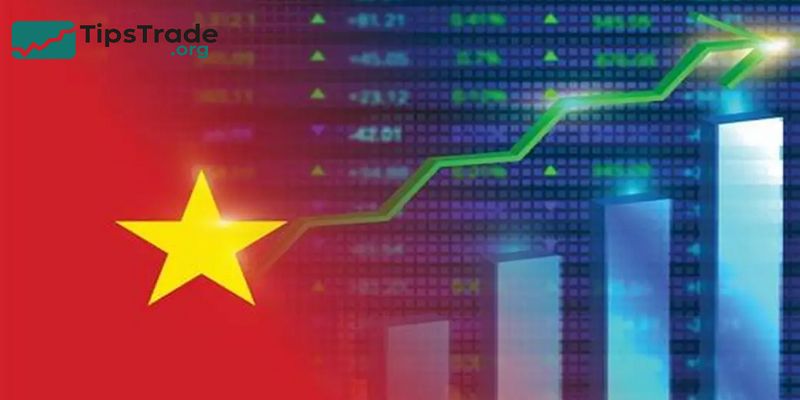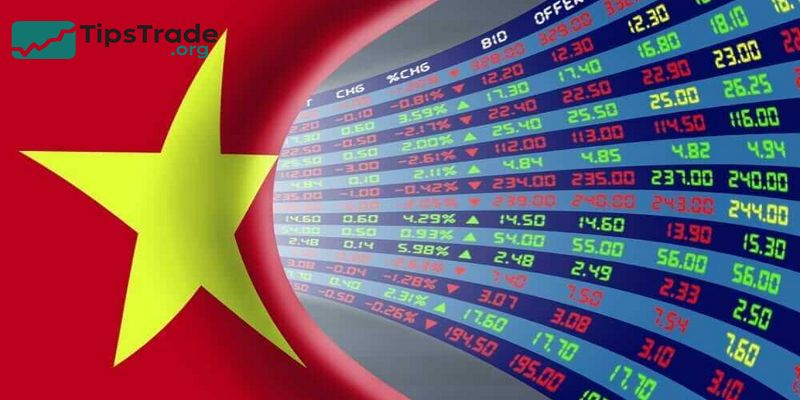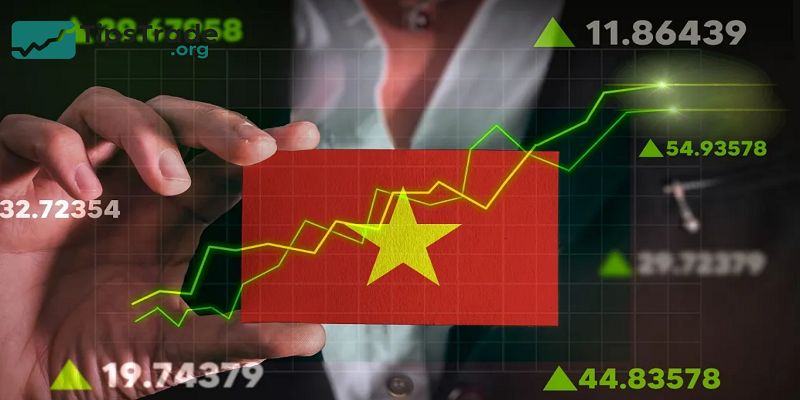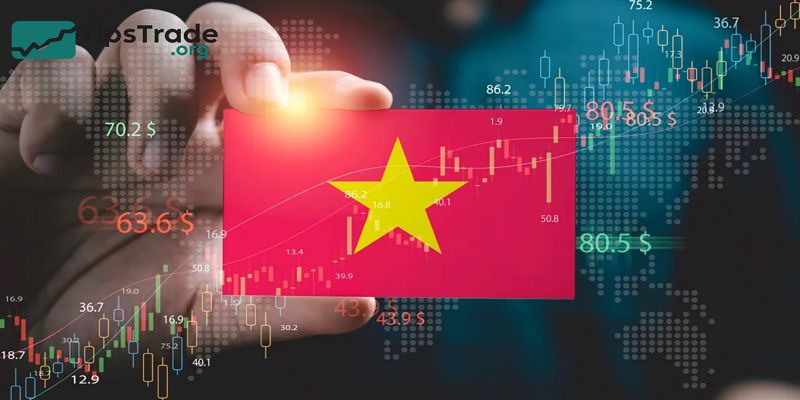Stock investing in Vietnam has become increasingly attractive as the country experiences rapid economic growth and market development. Investors are drawn to Vietnam’s dynamic stock market, which offers opportunities in diverse sectors such as technology, manufacturing, and consumer goods. Understanding the unique characteristics and risks of this emerging market is essential for making informed investment decisions. For a detailed understanding of these risks, you may also explore resources at Tipstrade.org which provide expert insights and comprehensive analysis on IPOs.
Why Investing in Stocks in Vietnam is Attracting Investors’ Attention

- Vietnam’s stock market has become one of the most dynamic in Southeast Asia, attracting both domestic and foreign investors.
- With consistent GDP growth averaging 6–7% annually, a young population, and strong industrial expansion, Vietnam offers fertile ground for stock investing.
- Over the past decade, the Ho Chi Minh Stock Exchange (HOSE) and Hanoi Stock Exchange (HNX) have evolved into mature platforms with modern trading systems and transparent regulations.
- For global investors seeking diversification, stock investing in Vietnam presents a blend of high growth potential and emerging-market risk.
- As manufacturing shifts from China to Vietnam, corporate earnings are rising across banking, technology, and export sectors.
- This guide explores how to invest in Vietnam’s equity market effectively — from choosing brokers and understanding indices to managing risks and identifying top sectors.
- What is the NYSE? Understanding the New York Stock Exchange
- Market Cap Stocks: What They Are and Why They Matter for Investors
- What is Stock Liquidity? Why It’s Important for Investors
- Primary vs Secondary Market: Key Differences Explained
Why Consider Stock Investing in Vietnam?

Vietnam’s Economic Growth and Market Overview
- Vietnam’s economy has transformed from agriculture-based to industrial and service-oriented.
- According to the World Bank, Vietnam’s GDP surpassed $430 billion in 2024, making it one of Asia’s fastest-growing markets.
- The country’s equity market capitalization now equals roughly 85% of GDP, supported by over 1,500 listed companies.
- The VN-Index, Vietnam’s benchmark, represents major blue-chip firms such as Vietcombank, Vinhomes, and Vinamilk.
- Despite occasional volatility, long-term returns remain attractive thanks to structural reforms, foreign direct investment (FDI), and stable monetary policy.
- Investors find Vietnam appealing for its combination of economic resilience and youthful consumer demand, both of which drive sustainable earnings growth.
Key Opportunities for Investors
Vietnam’s rising middle class and integration into global supply chains create diverse investment opportunities. Major growth sectors include:
- Banking & Finance: rapid digitalization and credit expansion.
- Technology: software outsourcing, fintech, and e-commerce.
- Manufacturing & Exports: electronics, garments, and semiconductors.
- Consumer Goods: strong domestic consumption and brand loyalty.
- Foreign investors also benefit from Vietnam’s participation in free-trade agreements (CPTPP, EVFTA), which open markets and improve transparency.
- Long-term investors can gain exposure through blue-chip stocks or ETFs tracking the VN-Index, which has historically returned around 10% annually since 2015.
Main Risks to Be Aware Of
While Vietnam’s prospects are bright, challenges remain:
- Regulatory uncertainty: evolving rules for foreign ownership and disclosure.
- Market liquidity: smaller trading volume compared with developed markets.
- Currency volatility: VND fluctuations can affect returns for foreign investors.
- Corporate transparency: limited English reporting and governance quality.
These risks can be mitigated by investing via Vietnam ETFs, diversifying across sectors, and using brokers that provide reliable research.
Understanding both upside and downside scenarios ensures realistic expectations — essential for any emerging-market investor.
How to Get Started with Stock Investing in Vietnam

Choosing the Right Brokerage and Account Type
To buy Vietnamese stocks, investors must open a securities trading account through a licensed broker such as SSI, VNDirect, or HSC. Foreign investors also need a trading code issued by the Vietnam Securities Depository (VSD).
When choosing a brokerage, compare:
- Trading fees and minimum deposits.
- Access to market research and English-language support.
- Integration with global platforms (e.g., Interactive Brokers or Saxo Bank).
Some ETFs — like the VanEck Vietnam ETF (VNM) — allow foreigners to invest indirectly without dealing with local paperwork. This flexibility makes Vietnam’s market increasingly accessible worldwide.
Understanding Market Structure and Indices
Vietnam operates two main exchanges:
- HOSE (Ho Chi Minh Stock Exchange) – home to large-cap companies and the VN-Index.
- HNX (Hanoi Stock Exchange) – focuses on mid-cap and government bonds.
There’s also UPCoM, an over-the-counter market for smaller firms.
Key indices include:
- VN-Index: tracks ~400 companies on HOSE.
- VN30: the 30 largest and most liquid stocks.
- HNX-Index: measures performance of northern listings.
Investors use these benchmarks to gauge overall market performance and to select ETFs or funds that mirror Vietnam’s economy.
Basic Investment Strategies for Vietnam Stocks
New investors can start with three core strategies:
- Buy-and-hold blue-chips: stable giants like Vietcombank or Vinamilk.
- Sector rotation: shift focus between banking, real estate, and technology as cycles change.
- ETF investing: choose diversified funds like VNM ETF or FTSE Vietnam ETF for broad exposure.
Consistent research, patience, and long-term commitment are key. Vietnam rewards investors who think beyond short-term price swings and focus on corporate fundamentals.
Practical Tips and Best Practices

How to Analyse Vietnamese Stocks
Evaluating Vietnamese equities requires both quantitative and qualitative insight:
- Financial metrics: ROE > 15%, debt ratio < 50%, and consistent EPS growth.
- Industry position: competitive advantage, export capacity, and domestic market share.
- Corporate governance: transparent reporting and dividends.
Use reputable sources such as Bloomberg, TradingView, or local sites like CafeF.vn for real-time data. Combining local insight with global analysis builds a more accurate picture of company potential.
Avoiding Common Pitfalls
Many beginners overlook these common issues:
- Chasing short-term speculative stocks.
- Ignoring foreign ownership limits (FOL = 49% for most sectors).
- Not considering currency or liquidity risks.
- Failing to diversify beyond one or two companies.
Successful investors treat Vietnam as part of a broader emerging-market allocation, balancing risk through regional diversification (e.g., ASEAN or Asia-Pacific funds).
Long-Term vs. Short-Term Investing
- Short-term trading in Vietnam can be profitable but volatile, especially for newcomers.
- Long-term investing, on the other hand, benefits from compounding and economic growth.
- Studies by Vietstock Research (2024) show that investors holding VN-Index ETFs for 5+ years achieved average annualized returns above 9%, far exceeding savings rates.
Those who focus on fundamentals, reinvest dividends, and stay patient tend to outperform active traders chasing daily fluctuations.
Example Portfolio and Sector Focus for Vietnam
| Sector | Allocation | Example Stocks/ETFs |
| Banking & Finance | 30% | Vietcombank (VCB), BIDV (BID) |
| Real Estate | 20% | Vinhomes (VHM), Novaland (NVL) |
| Consumer Goods | 20% | Vinamilk (VNM), Masan Group (MSN) |
| Technology & Telecom | 15% | FPT Corp (FPT), Viettel Post (VTP) |
| Manufacturing/Exports | 10% | Hoa Phat Group (HPG) |
| Cash/ETF buffer | 5% | VanEck Vietnam ETF (VNM) |
This sample allocation offers a balance of growth and stability while reflecting Vietnam’s economic structure.
Conclusion
Stock investing Vietnam presents both promising rewards and challenges due to its evolving regulatory environment and market volatility. Successful investors carefully analyze local trends and company fundamentals to capitalize on Vietnam’s growth potential. Overall, stock investing in Vietnam is a strategic option for diversifying portfolios and accessing one of Asia’s fastest-growing economies.
See more:

